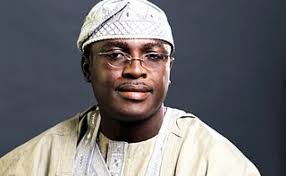According to Edward Morgan Forster, English novelist, and short story writer, “failure and success seem to have been allotted to men by their stars.
But they retain the power of wriggling, of fighting with their star or against it, and in the whole universe the only really interesting movement is this wriggle”.
The concept of destiny or fate in Africa is a rather controversial one. In Africa, destiny, often used interchangeably with fate, connotes what happens or will happen to man in life that cannot be changed, irrespective of any human effort.
An integral part of this conviction is the belief that not all men have the privilege of a great destiny. Some are destined for ordinary lives, while others are blessed with the fortune of a glorious life.
Hence, fate is regarded as the inexorable force that drives every creature toward its eventual end. Each individual has a predetermined fate. It is laid out for them at the time of their creation. Fate is, for the most part, inevitable.
You may be able to change some of the details, but unless there is divine intervention, no creature can escape the eventual force of fate upon their life. Destiny can be changed, because everyone has Free Will.
Free Will is the power to make your own decisions, no matter what destiny has in store for you. Every choice that is made can steer destiny. Destiny is difficult to avoid, though, because it often seems that those decisions yet to be made are part of that destiny.
How amazing! Belief in fate and destiny is not limited to Africans. The ancient Greeks equally acknowledged the role of fate as a reality outside the individual that shaped and determined human life.
In modern times, the concept of fate and destiny has developed the misty halo of romantic destiny, but for the ancient Greeks, fate represented a terrifying, unstoppable force.
In some of his plays, literary icon, Williams Shakespeare, also created impressions that support the fatality of life. In Macbeth, for example, we see a man who pursues his goal of the throne ruthlessly, with murderous ambition.
When the witches’ prophecies, upon which he has based his hopes, turn out to be just as misleading as any oracle’s pronouncement at Delphi, the audience is more likely to blame Macbeth for his inordinate ambition than to bemoan his fate with him.
Though many would readily rubbish the very basis of the fate and destiny hypothesis, believe it or not, certain events that happen in life tend to call attention to the reality of fate or destiny as key determinants of the course or direction of man’s life.
Many toil endlessly through life but never really achieve the goals they set out for themselves. Many even exit the world in tragic and mysterious circumstances just at the brink of attaining their goals in life.
On the other hand, many who idle away in life and are considered by many as unserious elements and or misfits often turn out to become inexplicable successes.
In this wise, fate or destiny is believed to be the unseen hand that navigates the course of man’s life, either for good or for evil. The process that produced Otunba Femi Pedro as the Deputy Governor of Lagos State on January 4, 2003 was a clear demonstration of the place of fate or destiny in determining the course of events in the life of a man and, indeed, the society.
Before he emerged as the occupant of the exalted office, neither he nor his most ardent followers could have romanticized the possibility.
That Otunba Femi Pedro eventually became the deputy governor of Lagos State and ultimately became a major player in the nation’s political landscape could be linked to the supremacy of fate.
However, it should be noted that those who will harness what destiny has in stock for them must not be idle. They must be men who have prepared themselves very well to leverage gold – en opportunities whenever fate comes knocking.
Otunba Pedro has always been a focused, visionary, and hardworking personality. His journey has been one with profound and enduring impact across various sectors.
Each chapter of his life has been defined by an unwavering commitment to innovation, service, and progress, making him one of Nigeria’s most respected and influential figures.
A banker to the core, Pedro’s banking career began in 1982 with the Central Bank of Nigeria (CBN). In 1988, he transitioned to the private sector, joining First City Merchant Bank (now First City Monument Bank), where he served as Executive Assistant to the bank’s Chairman and CEO, the late Otunba Subomi Balogun.
Pedro’s career took a significant leap in 1989 when he became a founding member and one of the seed investors of Guaranty Trust Bank (GTBank). He served as Chairman of the Institute’s Lagos Branch during that period, reflecting his leadership and influence within the banking industry.
After leaving GTB, Otunba Pedro began yet another ground-breaking journey as the Managing Director and CEO of Comet Merchant Bank.
This bank later became First Atlantic Bank, which, after a subsequent acquisition, changed its name to Fin – Bank and is now part of First City Monument Bank.
Under his vision – ary leadership, First Atlantic Bank (FAB) became Nigeria’s first true fintech institution, revolutionising the banking sector.
In 1999, Otunba Pedro introduced Nigeria’s first internet banking infrastructure and launched the “Flash Me Cash” mobile money platform, which helped solidify FAB’s position as a fintech pioneer.
His partnership with Infosys to implement the Finacle banking solution further modernised the bank, ensuring its place at the forefront of the digital banking era.
Introducing first@tlanticonline in 2000, Nigeria’s first Internet banking system, was another landmark achievement, providing customers unparalleled convenience and access to banking services.
A passionate author, in 2020, Otunba Pedro published ‘Formula for Wealth’, an award-winning book outlining essential wealth-creation principles through entrepreneurship, investment, and leadership.
The book provides a practical guide for aspiring entrepreneurs and highlights overcoming financial barriers such as the poverty trap and money illusion.
His insights have inspired many, especially those navigating challenging economic environments.
Ogunbiyi writes from Lagos














